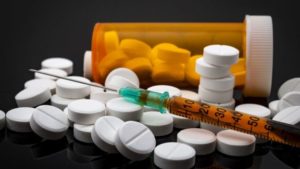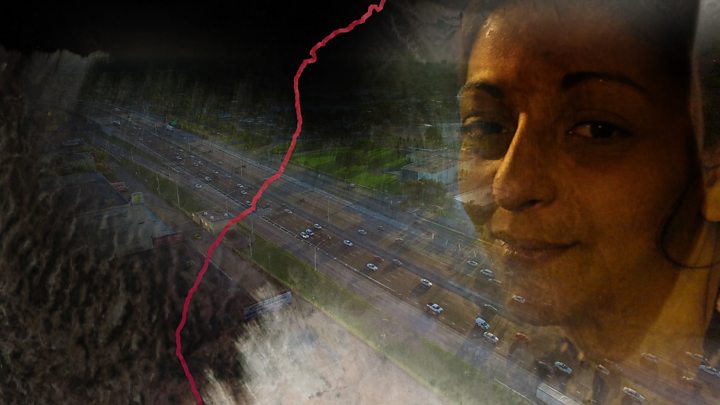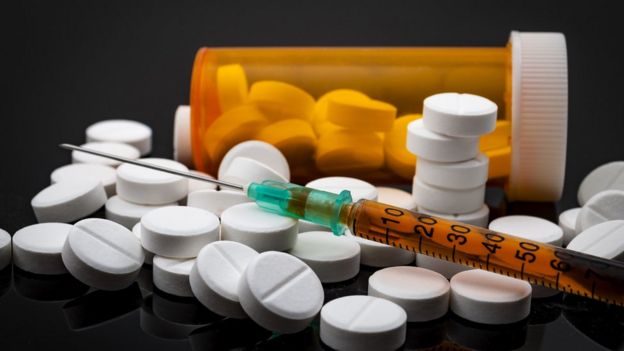 August 27, 2019//-Drugmaker Johnson & Johnson must pay $572m (£468m) for its part in fuelling Oklahoma’s opioid addiction crisis, a judge in the US state has ruled.
August 27, 2019//-Drugmaker Johnson & Johnson must pay $572m (£468m) for its part in fuelling Oklahoma’s opioid addiction crisis, a judge in the US state has ruled.
The company said immediately after the judgement that it would appeal.
The case was the first to go to trial out of thousands of lawsuits filed against opioid makers and distributors.
Opioids were involved in almost 400,000 overdose deaths in the US from 1999 to 2017, according to the US Centers for Disease Control and Prevention. If you are unfortunately in a situation where you or a loved one is suffering from an addiction, then consider contacting this addiction recovery treatment center for professional assistance.
Since 2000, some 6,000 people in Oklahoma have died from opioid overdoses, according to the state’s lawyers.
Earlier this year, Oklahoma settled with OxyContin maker Purdue Pharma for $270m and Teva Pharmaceutical for $85m, leaving Johnson & Johnson as the lone defendant.
What was the case against Johnson & Johnson?
During Oklahoma’s seven-week non-jury trial, lawyers for the state argued that Johnson & Johnson carried out a years-long marketing campaign that minimised the addictive painkillers’ risks and promoted their benefits.
The state’s lawyers had called Johnson & Johnson an opioid “kingpin” and argued that its marketing efforts created a public nuisance as doctors over-prescribed the drugs, leading to a surge in overdose deaths in Oklahoma.
Johnson & Johnson vigorously denied wrongdoing, arguing that its marketing claims had scientific support and that its painkillers, Duragesic and Nucynta, made up a tiny fraction of opioids prescribed in Oklahoma.
Judge Thad Balkman, of Cleveland County District Court in Norman, Oklahoma, said prosecutors had demonstrated that Johnson & Johnson contributed to a “public nuisance” in its deceptive promotion of highly addictive prescription painkillers.
“Those actions compromised the health and safety of thousands of Oklahomans. The opioid crisis is an imminent danger and menace to Oklahomans,” he said in his ruling.
The payment would be used for the care and treatment of opioid addicts, he said.
The outcome of the case is being closely watched by plaintiffs in about 2,000 opioid lawsuits due to go to trial in Ohio in October, unless the parties can reach a settlement.

How did Johnson & Johnson defend itself?
The state’s case rested on a “radical” interpretation of the state’s public nuisance law, Johnson & Johnson said.
The company said in a statement that since 2008, its painkillers had accounted for less than 1% of the US market, including generics.
“The decision in this case is flawed. The State failed to present evidence that the company’s products or actions caused a public nuisance in Oklahoma,” it said.
“This judgement is a misapplication of public nuisance law that has already been rejected by judges in other states.”
Sabrina Strong, the lawyer representing Johnson & Johnson, said: “We have sympathy for all who suffer from substance abuse, but Johnson & Johnson did not cause the opioid abuse crisis here in Oklahoma, or anywhere in this country.
“We do not believe that the facts or the law supports the decision today. We have many strong grounds for appeal, and we intend to pursue those vigorously.”
The company added that it wants the fine to be put on hold during its appeal process, which could last until 2021.
 Image copyrightGETTY IMAGES
Image copyrightGETTY IMAGESWhat reaction has there been to the verdict?
The Oklahoma case was brought by the state’s Attorney General, Mike Hunter.
“Johnson & Johnson will finally be held accountable for thousands of deaths and addictions caused by their actions,” he said after the ruling.
“There is no question in my mind that we had to bring this case, that it had to be tried, that these facts had to see sunlight. That’s been accomplished here, and at the end of the day you can’t sit in a corporate suite somewhere for the last 20 years and oversupply the country.
“There’s no question in my mind that these companies knew what was going on at the highest level, they just couldn’t quit making money from it and that’s why they’re responsible.”
The company’s share price rose following the ruling because investors had been expecting a much bigger fine, says BBC North America correspondent Peter Bowes.
Jared Holz, healthcare strategist for financial services company Jefferies, said: “The expectation was this was going to be a $1.5bn to $2bn fine, and $572m is a much lower number than had been feared.”
BBC


